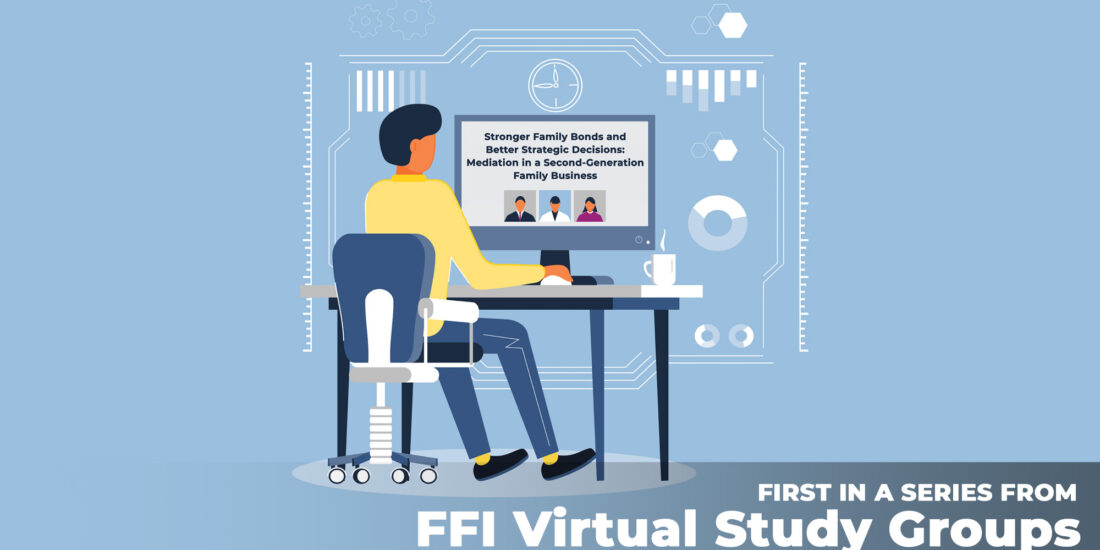Navigating the Gray in Family Business: Notes to my clients
Have you ever felt conflicted? A part of you wants one thing, but another part clearly favors something else. On one hand, it is a great idea, while on the other hand, you are not so sure. As a business decision you would choose “A.” On the personal side, you are much more comfortable with “B.”
We all face such quandaries every day, in ways big and small. The more roles we play or hats we wear, the more often we face the need to choose between equally attractive or unattractive options. The side of us that wins is pleased. The side that does not get its way has to live with the choice. When the best choice is not clear, the decision making process can cause internal conflict, sleepless nights, a knot in the stomach, questioning if we are making the right choice, wondering if we have missed something, or wishing that we could do both – have our cake and eat it, too, as they say.
How this plays out in family business is even more complex. Exponentially so, as the roles one serves are multiple – parent, sibling, child, friend, founder, owner, manager, board member, entrepreneur, near-retiree, recent graduate of college, divorcee, and, of course, more.
The stakes are high. The sea is gray. The person involved is not simply an employee, but family. The relationships are lifelong. They come with history and baggage. At the end of the day, you may leave the office, only to arrive home with that same individual. You may share the same dinner table. You may share the same bed. It is challenging to separate work and play when you work in a family business. It is hard to wear more than one hat at a time.
I have worked with family businesses that are a remnant of the original entity. In previous generations, the company was divided due to unresolved differences. The family was split; relationships ended. Sometimes one part of the business went under. A life’s work died, a tradition ended, significant assets were lost. For some, this has happened more than once. Now, the writing is on the wall. The controlling generation knows it needs to start talking, but is petrified by the possibility of history repeating itself. Family relationships could fracture again. Often, this type of avoidance is referred to as “being nice.” It is nothing of the sort.
As well meaning as the intentions may be, avoidance will never solve the complex matters facing families in business. Nor is there a book, as one patriarch I worked with fervently hoped, that tells you what to do. For the fear to fade and clarity to come, the difficult, dreaded discussions must be made.
To help us navigate this sea of gray, we have powerful tools — including acceptance, curiosity, and resilience. Simple in principle. Difficult in practice. Necessary, none the less.
- Acceptance is often misunderstood. It is not the same thing as approval. Acceptance is acknowledging that “what is, is,” whether we like it, agree with it, understand it, or not. We cannot change a reality we deny exists. Accepting reality “is what it is” is a necessary step for constructive conversation. This includes accepting that others have every right to their own thoughts, feelings, and desires, as well.
- Curiosity is a powerful tool that helps us suspend judgment. Practice it. Take interest in the perspectives of others. Explore the matter from their angle. Try to understand how they reached their conclusion, even if it is one with which you disagree. Remind yourself, it is often a matter of differences, not right or wrong. None of us have a monopoly on wisdom or insight.
- Resilience, too, is a skill that can be honed through practice. We are human. We will make mistakes. We do not have to treat them as a sentence and carry around a mantle of shame or regret. Try. Try again. Those we love are human, too. They will fail. Forgive them. Forgive them again.
There is an art to these tools, which can only be developed through practice. Families can benefit much from having a neutral party coach them and facilitate conversations as they practice these skills and develop muscles in the area of difficult discussions. Often families are relieved just to have the situation normalized. “Whew, one less thing to worry about – it is not just us!”
The sea may be gray but there can be calm waters ahead.
About the contributor:
 Melissa Mitchell-Blitch is a family business consultant, based in Charleston, SC. She helps families navigate the complexities of business and wealth, and is passionate about recovery from addiction and similar challenges. Melissa can be reached at Melissa@EreditaConsulting.com.
Melissa Mitchell-Blitch is a family business consultant, based in Charleston, SC. She helps families navigate the complexities of business and wealth, and is passionate about recovery from addiction and similar challenges. Melissa can be reached at Melissa@EreditaConsulting.com.




